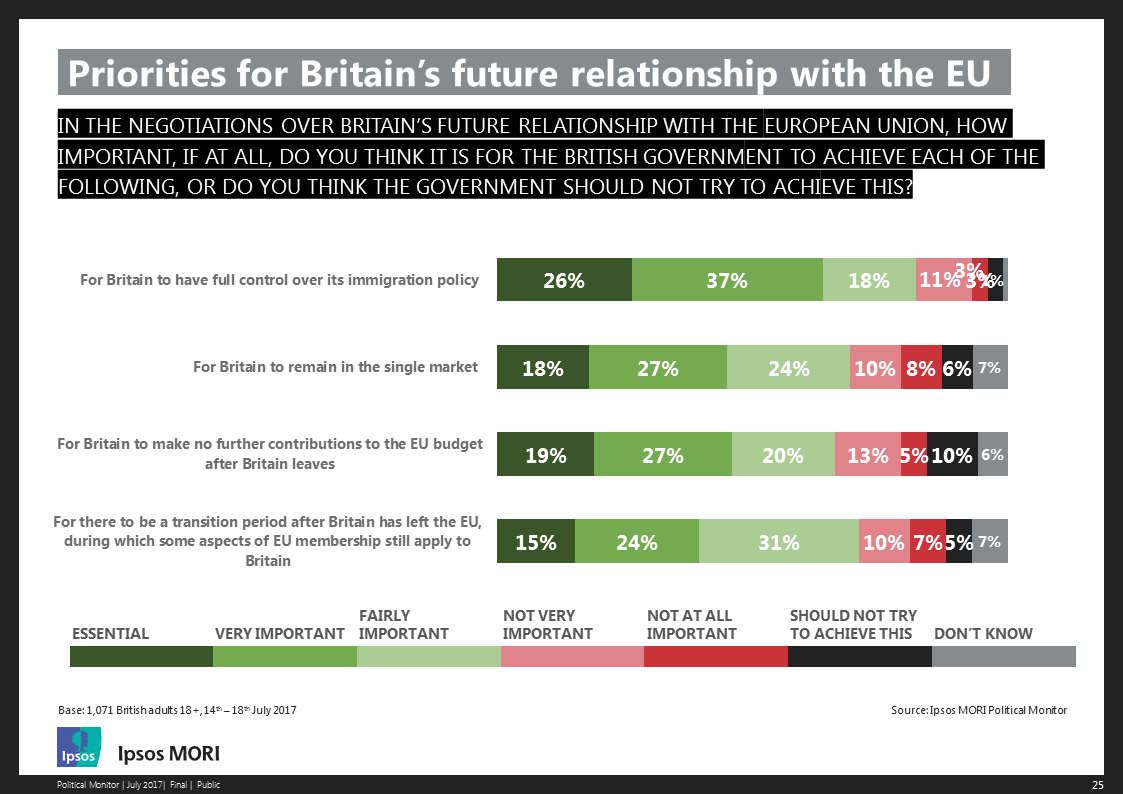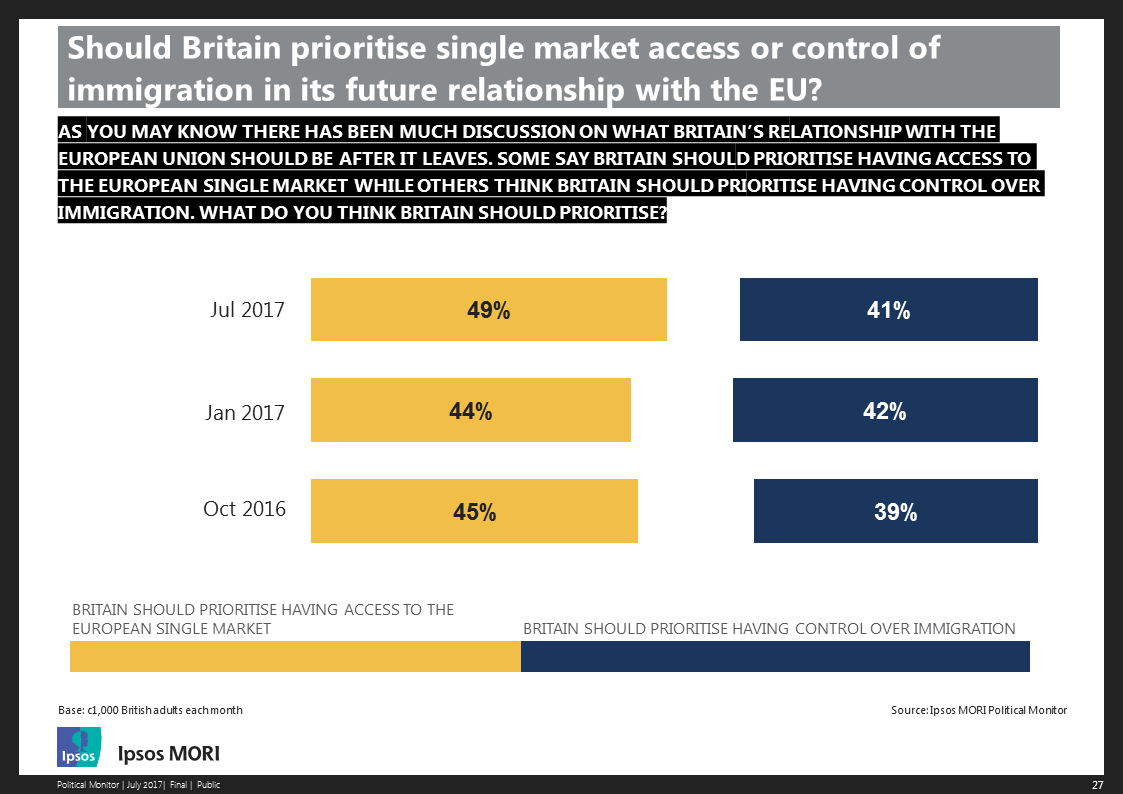Britons split on single market access vs immigration control but move to single market
As the government proceeds with talks on Britain’s withdrawal from the European Union, ratings for Theresa May and her government’s handling of the negotiations have slipped since March, according to the latest Ipsos Political Monitor. Three in ten (31% - down 5 points) think the government is doing a good job while three in five (58% - up 6 points) think it is doing a bad job. The shift in opinion is worse for Theresa May for whom one in three think she’s doing a good job (35% - down 14 points) and 55% a bad job (up 15 points).
There is also a fall in optimism that Mrs May will get a good deal for Britain from the Brexit negotiations. One in three (36%) say they’re confident that she’ll get a good deal while three in five (60%) are not confident. This is worse for the Prime Minister than in March when 44% were confident in her and half (51%) were not. Despite this there is more faith that Theresa May can do the job than her opponent Jeremy Corbyn. When people were asked if they would be confident in Mr Corbyn to get a good deal if he were Prime Minister three in ten (29%) said they would be confident in him but two-thirds (67%) would not.
When asked about some of the various aims that Britain should try to achieve in its negotiations on withdrawal from the European Union, full control over immigration comes out on top with the highest proportion of people (63%) saying it is essential or very important to achieve. Just under half (45%) say remaining in the single market is essential or very important, as do 46% for making no further contributions to the EU budget after it leaves, while two in five (39%) say a transition period after Britain has left the EU is essential or very important.

When asked to make a direct choice over whether Britain should prioritise access to the single market or control over immigration the country remains split over these objectives, although there has been an increase in those prioritising the single market from January. Half (49%) would prioritise access to single market (up 5 points) while two in five (41%) would prioritise immigration control (no change from January when it was 42%). Three-quarters of young people and graduates prioritise access to the single market, but older people and those with no formal qualifications prioritise immigration control.

Gideon Skinner, Head of Political Research at Ipsos, said:
The public is no nearer to coming to a unanimous position over what it wants from the Brexit negotiations (with big differences by age and education level), although there has been a move towards the single market – but there’s not much confidence in either of the main party leaders to get a good deal for Britain.
Technical note:
Ipsos interviewed a representative sample of 1,071 adults aged 18+ across Great Britain. Interviews were conducted by telephone 14th – 18th July 2017. Data are weighted to the profile of the population.




